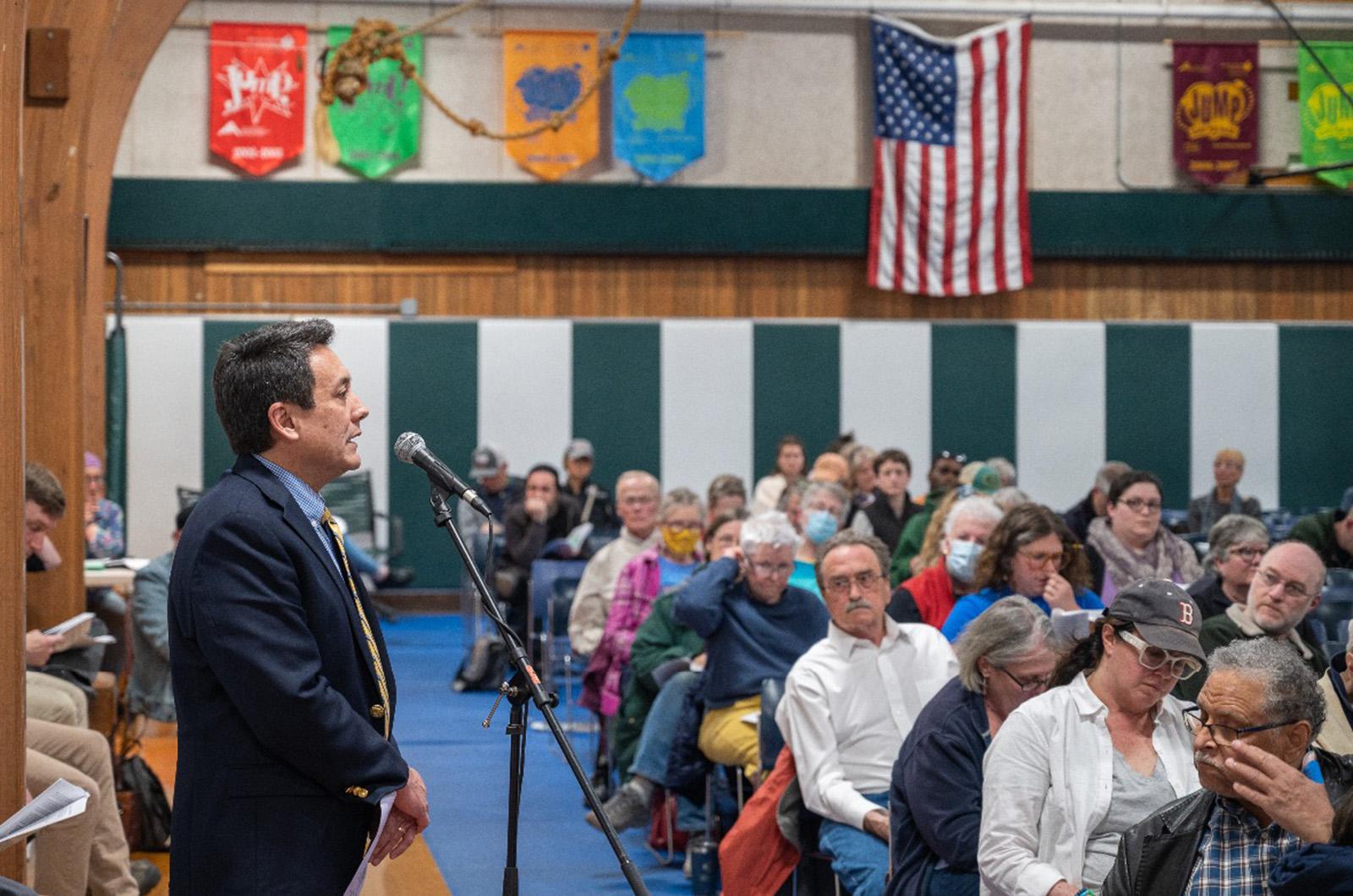The legal tug of war over the regional high school’s plan to use artificial turf on its athletic fields took center stage unexpectedly this week as town meeting season got under way. In a pointed if symbolic move, West Tisbury voters refused to fund their share of the school’s budget in a protest over continued legal spending.
The turf plan has been in limbo since it was approved in a split vote by the Martha’s Vineyard Commission in June 2021. Eleven months later, the Oak Bluffs planning board denied the school’s plans, citing concerns over the effects of PFAS chemicals (per and polyfluoroalkyl substances) in the town water resource protection area.
The school district sued the planning board, arguing that the so-called Dover Amendment, a state law that exempts agricultural, religious and educational uses from certain zoning restrictions, means that the town has no jurisdiction.
The school committee initially committed $30,000 to the legal fight, but after learning last week that attorney fees have outstripped the initial estimate by more than $4,000, the high school committee voted 5-4 to continue funding the lawsuit with no cap.
Voting against the continued legal spending were all three up-Island members, including Jeffrey (Skipper) Manter, who serves both on the school committee and on the West Tisbury select board. It was his motion to zero-fund West Tisbury’s $3.4 million share of the high school’s $25 million annual budget, which was overwhelmingly passed at Tuesday’s annual town meeting.
Superintendent of schools Dr. Richard (Richie) Smith, who appeared at the town meeting to ask for West Tisbury’s support, told the Gazette Wednesday that he understood the vote as a protest against the turf field lawsuit.
“I also believe that West Tisbury is not looking to harm anyone. I do believe they have the best interest in kids,” Mr. Smith said, noting the town meeting’s strong support for the high school feasibility study and capital funding formula.
“There are a lot of financial pressures on our towns right now,” he added. “We’re not taking anything for granted.”
One or even two Island towns voting not to fund the high school won’t require a change to the budget, as long as four towns vote in its favor.
“If we don’t get four towns, we will have to go back with our school committee and try to address some of the [voters’] reasoning and have that reflected in our budgets,” Mr. Smith said.
If West Tisbury finds itself in the minority after the rest of the annual town meetings have voted, Mr. Smith said, it would be the town’s responsibility to convene a special town meeting to approve its share of the high school budget.
Failing to hold such a meeting would not exempt the town from the obligation to pay its portion, according to Massachusetts general law.
Oak Bluffs and Edgartown voters approved the high school operating budget this week. Other towns are due to hold their annual meetings after school vacation: Chilmark on April 24, Tisbury on April 25 and Aquinnah on May 9.
Speaking with the Gazette Thursday, Mr. Manter said he wants the school committee to resolve the turf field lawsuit because that’s what his town’s residents want.
“West Tisbury voters made it clear what they feel about the lawsuit,” Mr. Manter said.
What other towns decide is up to them, he added.




Comments (6)
Comments
Comment policy »